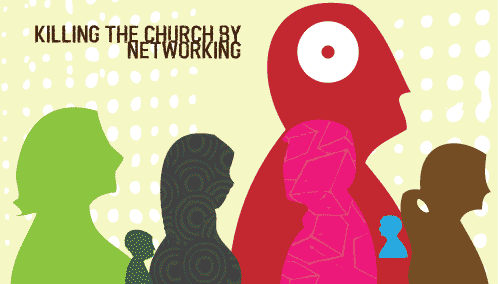
Killing the Church by Networking
March 9, 2011
From a Beep to a Whisper
March 10, 2011Avery Oslo (Creating the Impossible: The Invisible Network of Britain’s Activist Subculture) began ethnographic research on Scottish Road Protest Culture in 2004. As a part of this research, she has lived with environmental activists on-and-off for several years on four Scottish protest sites (two of which were forcibly evicted and two of which are still active as of March 2011). During this time, Oslo accompanied the protesters on actions & demonstrations, and traveled with several of them to other sites in the UK to compare notes and observe the construction of the activist network. She would like to thank the protesters who helped her understand the culture enough to write this article, and in particular those who offered constructive feedback and suggestions to the final product. To read more, follow on Twitter (www.twitter.com/AveryOslo) or check out the blog (www.averyoslo.wordpress.com).
Babak Rahimi (Iran’s Reformists and Activists: Internet Exploiters), who earned his BA at UCSD, received a Ph.D from the European University Institute, Florence, Italy, in October 2004. Rahimi also studied at the University of Nottingham, where he obtained a M.A. in Ancient and Medieval Philosophy, and London School of Economics and Political Science, where he was a Visiting Fellow at the Department of Anthropology, 2000-2001. Rahimi has written numerous articles on culture, religion and politics and regularly writes on contemporary Iraqi and Iranian politics. He has been the recipient of fellowships from the national endowment for the Humanities and Jean Monnet Fellowship at the European University Institute, and was a Senior Fellow at the United States Institute of Peace, Washington DC, where he conducted research on the institutional contribution of Shi’i political organizations in the creation of a vibrant civil society in post-Baathist Iraq. Rahimi’s current research project is on the religious cultural life of the Iranian port-city of Busher, southern Iran.
Christina Ashtary (Creating Social Capital in Politically Restrictive Environments: The Virtual Sphere and Iran’s Weblogistan) is a Democracy and Democratisation Masters student at the University College London’s School of Public Policy. She has experience with U.S. government, NGOs, the private-sector, and capacity-building initiatives with a regional focus on the Middle East, and currently supports a development program targeting Afghan refugee communities in Iran. Christina is interested in the role of civil society empowerment, social networking, and civic engagement in enforcing transparency and accountability within governments.
Donya Alinejad (The Death of the “Twitter Revolution”…) is currently a doctoral candidate at the Vrije Universiteit Amsterdam conducting research on the role of internet in the everyday lives of second generation Iranian Americans in Los Angeles, California.
Elham Gheytanchi (Iran’s Reformists and Activists: Internet Exploiters) is a sociologist, writer, journalist, and Iran expert. She teaches at Santa Monica College. Her scholarly articles, opinion columns, essays, and book reviews on Information Communication Technology (ICT and Mobiles) and women’s rights movement in Iran have appeared in International Sociology Journal, Mobilization Journal as well as host of online and print media such as CNN 360, Huffington Post, Ms Magazine, Boston Globe, and San Francisco Chronicle. She has worked for National Public Radio (NPR) as associate producer (2002). Gheytanchi has served as an Iran expert for asylum cases in the US. Gheytanchi is also the author of Persian articles on Iranian politics and culture, poems, and short stories published in Persian websites and journals.
Eric Asp(Killing the Church with Networking) is an American videographer/writer/pastor living in Amsterdam, together with his wife and three children. He studied Communications and Creative Writing at Bowling Green State University but has found daily life and a continuous supply of Moleskine journals to be his best teacher. His casual and critical observations on life, love, and faith can be found on-line at www.ericasp.com.
Halleh Ghorashi (The Networked Diaspora and Berlin, Bam, New Media…) holds the chair in Management of Diversity and Integration in the Department of Culture, Organization and Management at the VU University, Amsterdam, The Netherlands. She is the author of Ways to Survive, Battles to Win: Iranian Women Exiles in the Netherlands and the United States (Nova Science Publishers, 2003), as well as several articles on identity, diasporic positioning, cultural diversity and emancipation issues both inside and outside organizations. Her present research focus is on the narratives of identity and belonging of migrants, and the processes of exclusion and inclusion in the context of growing culturalism.
Hamid Tehrani (Let’s Beef Up and Meet Up) is a long-time observer of the Iranian blogosphere. He is a researcher, blogger, and journalist who is the Persian editor of Global Voices Online. Tehrani has published a number of articles about Iran in journals and magazines all over the world and has been interviewed by the BBC and other international media. Recently Tehrani led seminars at Yale on anti-Semitism in Iranian blogs.
Kees Boersma (The Networked Diaspora and Berlin, Bam, New Media…) is Associate Professor and research manager in the Department of Culture, Organization and Management at the VU University, Amsterdam. His research interest is in science and technology studies, and organizational culture and politics. He has published widely on the history of technology, organizational learning and new media, and organizational change. He is co-editor of ICTs, Citizens & Governance: After the Hype! (with A. Meijer and P. Wagenaar, IOS Press, 2009).
Ladan Boroumand is research director and cofounder of the Abdorrahman Boroumand Foundation (www.iranrights.org), which promotes human rights and democracy in Iran, and a former visiting fellow at the International Forum for Democratic Studies. She is the author of la Guerre des Principes (1999), an extensive study of the tensions throughout the French Revolution between human rights and the sovereignty of the nation. She is the author and co-author of several articles on the French Revolution, the Islamic revolution of Iran, and the nature of Islamist terrorism.
Linda Herrera is a social anthropologist with regional specialization in the Middle East and North Africa. She works in the fields of global studies in education, critical development studies, and youth studies. Recently she has turned her attention to youth cultural politics and revolution in the Middle East.
Mana Mostatabi is United4Iran’s Social Media and Online Community Director since November 2009. As part of this role, she is responsible for coordinating, producing, and disseminating content. This includes everything from using social media platforms to share news and updates, while growing the online network and encouraging online action. Mana maintains and produces advocacy campaigns that include letter writing and postard mailing to empower the network to focus on a specific rights issue and take action aimed at the targets best able to respond. Mana, a native of Ahwaz, Iran, immigrated to San Francisco, California with her family in 1987.
Nazila Fathi (From a Beep to a Whisper) covered Iran for 15 years for The New York Times and was recently a Niemen fellow at Harvard. During the 2009 post-election protests, her house was under surveillance. Realizing the danger to herself and her family, she and her family left the country shortly after the elections.

